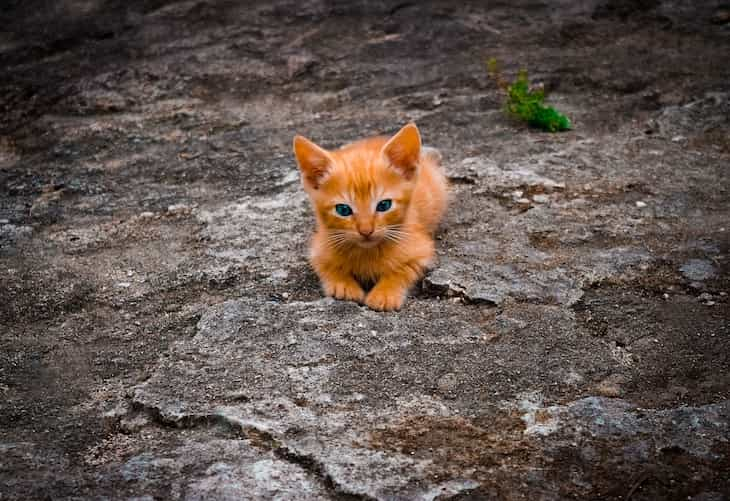Smaller kittens can have fleas, and it's better to get rid of them as soon as possible - but how to do it?
Kittens require effective, but also safe methods, so you won't accidentally harm them.
Here are a few things you can do.

Consult a veterinarian
It's important to seek advice from a vet who can recommend safe and appropriate flea treatment options for young kittens.
Use a flea comb
Gently comb through your kitten's fur with a special flea comb.
This will help remove adult fleas and their eggs. Remember to do this carefully to avoid hurting the kitten.
Bathe the kitten
Give your kitten a warm bath using a mild, flea-specific shampoo recommended by the vet.
Thoroughly lather the shampoo and rinse it off, making sure to cover the entire body.
Avoid getting water or shampoo in the kitten's eyes, ears, and mouth.
Dry the kitten
After the bath, carefully dry your kitten using a towel.
Make sure to keep them warm and comfortable during the drying process.
Wash bedding and vacuum
Wash the kitten's bedding in hot water to kill any fleas or eggs.
Vacuum the areas where the kitten spends most of its time, such as carpets, rugs, and furniture.
Empty the vacuum bag or canister immediately to prevent fleas from returning.
Treat the environment
Use a veterinarian-approved flea spray or powder to treat the areas where the kitten stays.
Follow the instructions carefully and ensure the product is safe for young kittens.
Prevent reinfestation
To prevent fleas from coming back, use a flea preventative recommended by your vet.
These can come in the form of topical treatments, oral medications, or flea collars.
Make sure to choose a product specifically designed for kittens of your kitten's age and weight.
Regular grooming
Continue to comb your kitten's fur regularly with a flea comb to catch any remaining fleas and remove them.
Previously, we talked about loud parrots.











